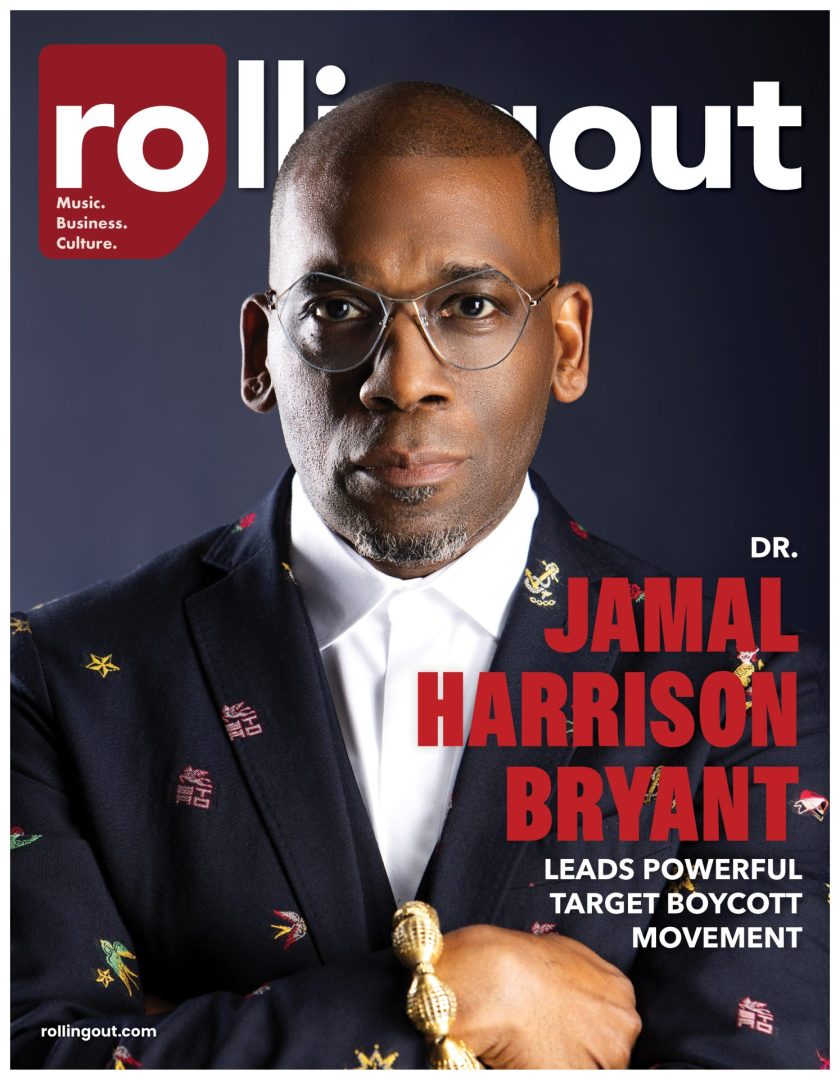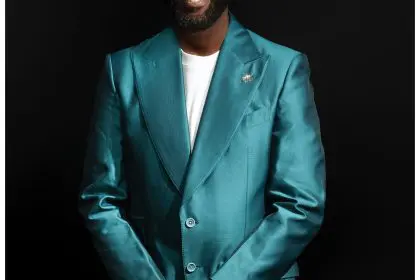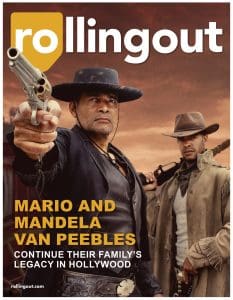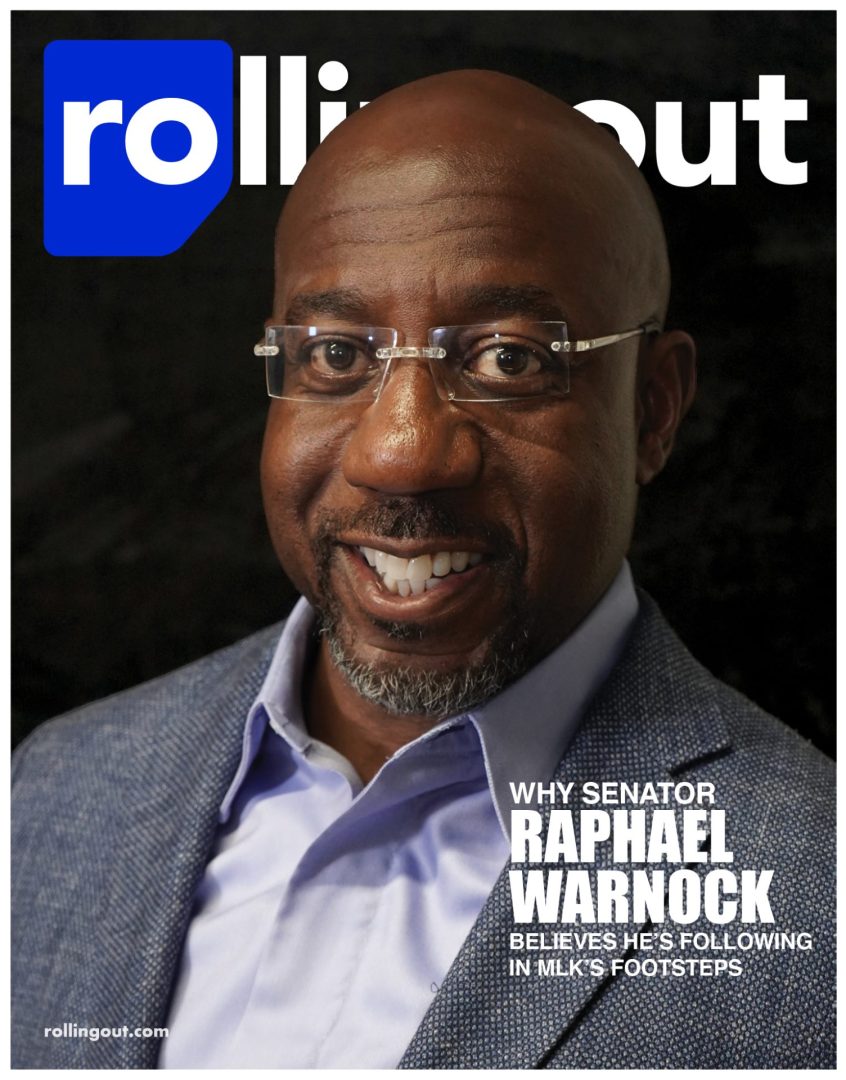Pastor Jamal Harrison Bryant stands at the intersection of spiritual leadership and social activism, carrying forward a legacy that spans generations. As a third-generation pastor leading New Birth Missionary Baptist Church in Stonecrest, Ga., just east of Atlanta, Bryant has embraced his divine calling to serve not only as a spiritual guide but as a voice for social justice and community transformation. His platform extends far beyond the pulpit, addressing the socio-political fabric of society while providing spiritual covering for his congregation.
Many of the characteristics of Martin Luther King Jr. and Bryant are poised and steeped in the Morehouse tradition of service, scholarship and success. Currently spearheading what he calls “the most effective boycott for Black people in 70 years,” Bryant leads the Target Fast movement, demonstrating his commitment to economic empowerment and racial equality. His approach combines traditional spiritual principles with modern activism, recognizing that today’s pastoral role requires connecting on deeper levels with people seeking answers, guidance, and hope. Through his leadership, Bryant continues to witness the transformation of lives while sowing seeds of change in hearts and minds across communities.
What is the spiritual value of fasting?
Fasting is the principle of self-denial, that you make yourself second, that you’re able to feed your spiritual self first, and you’re able to negate whatever distractions might be an obstacle to your clarity and your focus.
Why must we realign and create economic clarity for our community?
Before Dr. King was assassinated, he said that the next step after civil rights was silver rights. He complained to Harry Belafonte privately over dinner and said, “I think I’ve integrated the Negro into a burning house.” What’s the point of Black people being able to get to a lunch counter if they don’t have money for a cheeseburger? When we talk about economic development, I think that that is the final frontier for equity and parity in this country for Black people.
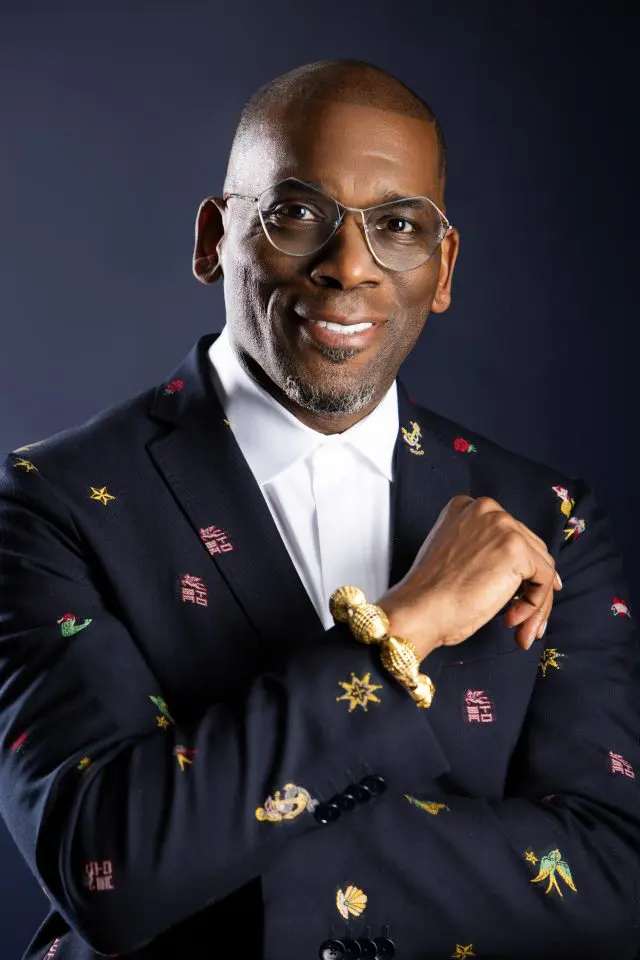
How should we encourage community members who don’t understand the value of the boycott?
That knowledge is power. The most critical tool we have is education. The Bible gave the warning [that] people die from a lack of knowledge. The court system says that you’re still accountable to the laws that you don’t know. And so I think when we educate our people, then we empower our people.
How does spiritual growth happen through fasting?
Spiritual growth happens in fasting when you’re focusing on how you’re being and realizing that you operate out of every gift because of humility. It’s not because we’re so great, but because God is good. Growing spiritually means that I am not in competition with anybody, but my former self. And so you’re able to mark your growth based off of new decisions, new choices, and new perspectives.
What’s the value proposition of being involved in a church for those who haven’t come to church?
One of the mistakes that churches make is thinking you can only grow spiritually in church. Ninety-two percent of what Jesus did was outside of the church. Now 92 percent of what we do is inside of the church. You really don’t know who you are in God until you walk outside. The reality is that at the end of the year, whether you’re at high school or in college or even middle school, they have something called commencement. The irony is that’s the conclusion of the education, but it’s the beginning of the praxis. So, our real Christian journey begins at the benediction. It’s really easy to be saved in the sanctuary, but how it is that you live that life Monday through Saturday is the real litmus test.
Can you share a personal story about the importance of creating a legacy for the next generation?
Legacy is so important. I remember the first time that I got suspended from school. I was in the seventh grade and they called my dad to come pick me up from school. My dad bent down till we were eye to eye. And he said, “What is your name?” I said, “Jamal.” He said, “What is your full name?” I said, “Jamal Harrison Bryant.” He said, “Every time you go in that class and act like a clown, you’re dishonoring your grandfather’s name. So, you don’t just walk in for you. You walk in for every man that was in your family.” It’s in that moment that I knew I had the weight of not being an individual, but being a legacy.
What should we take away from this fast age and Dr. King’s legacy?
In an era where there are not too many examples of legacy on its face, there are a whole lot of legacies that are before our eyes. You have seen LeBron James create a legacy. You have seen Deion Sanders create a legacy. You’ve seen LaVar Ball create a legacy. Success as individuals is a Black notion. Success as families is a cultural standard that we’ve got to live up to. John Maxwell said, “There is no success without a successor.” You have not really proven yourself to be successful until you’ve trained somebody to take your place.
What would you say about Black fathers who are doing an excellent job?
I think that we have got to dismiss the media’s propaganda about poor Black parenting. The reality is Black fathers are more engaged in their children’s life than White fathers. Black fathers are less prone to commit a domestic violence or sexual abuse than White fathers. Black fathers are more actively engaged in doing homework than White fathers. Black fathers are more involved in extracurricular activities like sports and hobbies than White fathers. But whenever it is that we hear about a [bad] father, psychologically we envision a Black father and that’s not true.
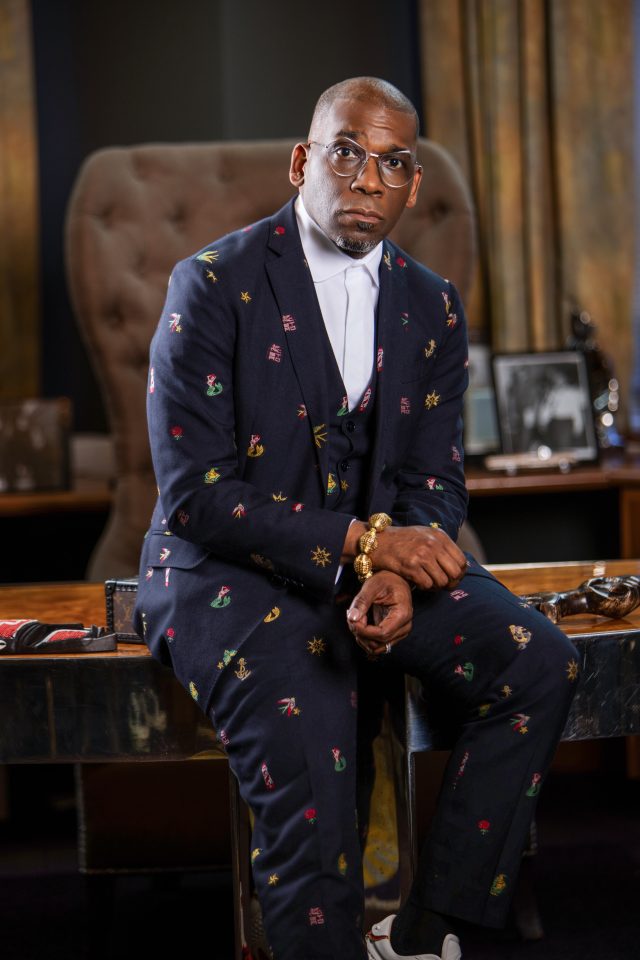
What movement would you like to see the next generation take part in?
Seventy years ago, Martin Luther King Jr. led the Montgomery bus boycott. Seventy years later, I am leading a Target and a Dollar General boycott. I’m not fathering it, I have put it under foster care. I’m taking care of something that doesn’t belong to me. This generation does not know instrumentation, they only know remix. So, they are not creating music, they’re trying to find a way to redefine music. I am remixing a legacy from Montgomery to Selma to Nashville to Atlanta that is still now taking the rhythm and the harmony of the pain of our people trying to etch out a new sound for what America is supposed to look like. I am not a conductor as much as I’m a DJ. I’m bringing two different sounds together so a new generation can find how to dance to the beat of a different drum.
How important is it for torches to be passed to generations sooner than later?
It has been said that I am carrying the torch from the previous generation and regrettably not too much torch passing has happened for Black people. And that’s because we’ve not had the luxury of succession. We’ve had the reality of assassination. So, most of our leaders have not been able to pass the torch because they were snuffed out in their prime. This is the oldest leadership Black America has ever had, and so young people need to be reminded of the fact that there is no revolution without young people being on the front line. The more old people hold the torch, the more they’re holding up the line before real change can happen.
How should we think about our $13 trillion economic power?
Black people have in the orbit of $13 trillion worth of spending power. I shared with you that this is the most effective boycott for Black people in 70 years. And I am ashamed because 70 years later, while I’m having to boycott Target, I don’t have one national franchise owned by Black people that I can redirect them to. Can you imagine how misguided we are that we’re celebrating the growth of Costco that does not put money back in our pockets? And so it’s very important that we don’t teach financial literacy, we teach financial empowerment. Once we have access, what do we do to it? And we’ve got to make sure that we invest more than we spend.
How important is saving money for those who don’t understand that saving is more important than spending?
Saving is an unsexy commodity. The reality is that 85 percent of Black people don’t have anybody they can call if in an emergency they need $5,000. We’ve got to recalibrate our thinking around money and know that it is a tool, it is an instrument, and it is a weapon. Wealth provides options. Poverty only leaves you with dictation, and poverty, they got to tell you when to come to work, how many days you got off, when you can have sick leave, when you can have personal time, when you can go to your doctor’s office. Wealth helps you to dictate your own schedule and even the schedule of the destiny of your children.
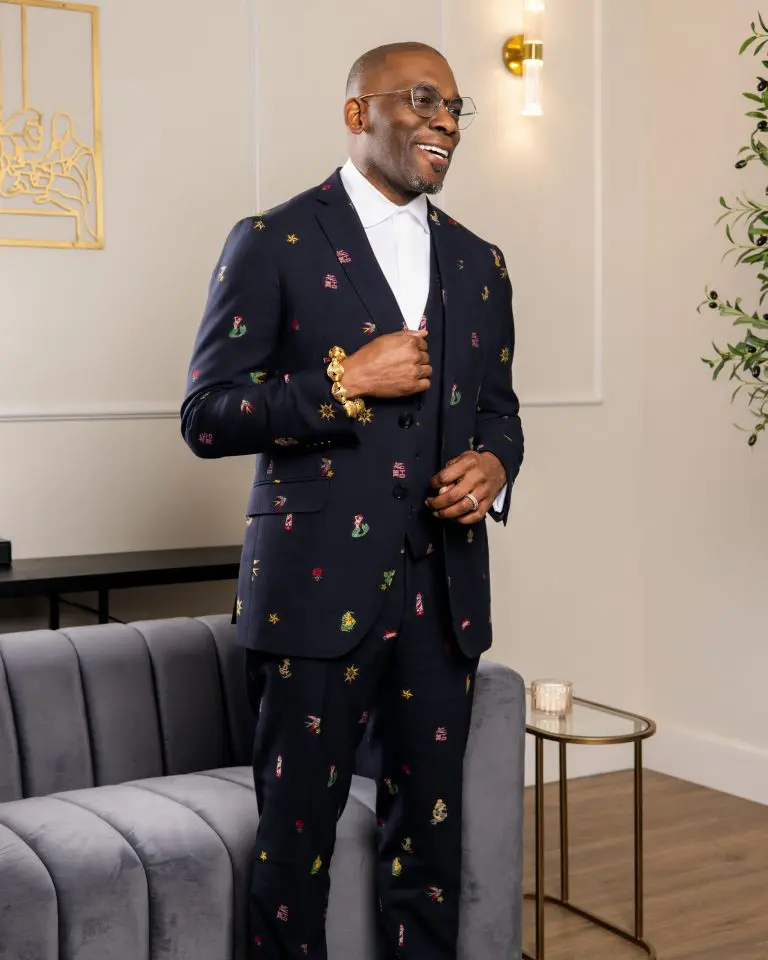
Why give so much when you don’t have to, especially considering safety concerns?
I am in the midst of a lot of eyes, a lot of focus, a lot of detraction. Dr. King had his house bombed, got stabbed in the department store. Malcolm X found himself under imminent danger and threat and had to have his children and family live under different roofs. The greatest threat that I have to deal with is cyberbullying. And so when you put it all into context, if I get enraged and upset because somebody got a blog or somebody has a comment, it’s not the same. I use Malcolm and Martin as a cultural identifier, but I’m a Christian. The ultimate sacrifice was Jesus on the cross. I’m grateful for whatever time I’ve had to give up, whatever hours I was robbed of sleep, whatever planes I had to get on and travel does not compare to the ultimate sacrifice of crucifixion.
Can you educate us on why we shouldn’t want our pastors to be poor while celebrating other pastors without questioning their wealth?
America has always had two Christianities, two gospels, two versions of Christ. The last vestige of slave religion and Christianity is associating Christianity with poverty. To assume that to be saved is to live in a deficit. We ridicule and deride anybody who excels and does well. James Baldwin calls it survivor’s guilt, that you’ve got to apologize for excelling. It is a part and parcel of the reprogramming of what it is that we’ve had since the days of slavery. The Bible says the oil flows from the head and goes to the skirts of the robe. So whatever is on the pastor should be on the people. I tell the members of our church, never go to a church where you can tell which car the pastor drives, because it should be 12 other cars just like it in the parking lot. And if it is not, then authentic teaching is not taking place.
What skill sets do you think we’re missing? Have we overrated or underrated trades like plumbing or electrical work?
Part of the skill sets that I’m missing have been held hostage by the Black Church. The Black Church has adopted W.E.B. DuBois and thrown away Booker T. We only celebrate one track, and that’s liberal arts education. By 2029, America is going to need 300,000 plumbers, 150,000 electricians. But we’re not pushing anybody to go to technical school, to go to trade school. We see the closing of Job Corps as an inconvenience, where every civil rights organization ought to be sounding the alarm. I think that it’s time for us to put our hands to the plow and realize that those service jobs are one of valor, integrity, and honor, and they should be celebrated accordingly.
When you think about your eulogy, what do you want us to say?
I don’t know if a eulogy will be necessary for me. I think they would just have to sing three stanzas of “Amazing Grace.” Having never taken the SATs, but the very first person to get into Morehouse with a GED, amazing grace. Starting a church with no members and ultimately pastoring the largest Black church in America, amazing grace. I am an exception that I hope becomes God’s rule. That I am the third generation in my family to hold a doctorate degree. That I am able to look at three generations of men in my family who are college graduates. It’s significant as an honor. It’s humbling and it is the evidence of grace.
When people look at the Civil Rights Movement and are weary, what should they understand about why it doesn’t need to stop?
When people look at the Civil Rights Movement right now and are weary of it, I’m not sure what they’re tired from. This generation of civil rights activists have not had to walk from Selma to Montgomery. They’ve not had to face fire hoses or barking dogs. They’ve not been arrested en masse. They’ve not been hit with billy clubs for trying to get a drink of water. Can you imagine that they were able to start 112 colleges and universities with no Internet? With no grants. With no federal funding. And so we should be robbed of every excuse and adopt every reason why it is that we should try to make America great.
What are your favorite memories of being at Morehouse?
That’s the best four years of my life. It was in Morehouse that I met Coretta Scott King. It was because of Morehouse that I was one of Nelson Mandela’s first interns. It was because of Morehouse that I was able to sit with the president of Nigeria. Out of the class that I came out of at Morehouse, I have a classmate who was a U.S. Senator. Got two classmates who are mayors of major cities. Classmates that are presidents of HBCU, city council, colleagues of mine who are the most effective pastors in the country. After [my] accepting Jesus Christ, Morehouse made me a man in ways that I can’t even describe or even define.
For those who are getting tired or haven’t decided to join the movement, what would you say?
I want to give high commendation to those who have been in the struggle without fanfare. Been doing the work without a press conference. Been moving the community forward without ever getting a commendation or a medal or a trophy. I want to hail Black women all over the country who have repeatedly hoisted America on [their] back. The scripture has you in mind when it says “Be not weary in well doing.” We are not machines. We’re humans. So take a break, rest, drink your water, practice Pilates, go walk on The Belt Line. But after you get refreshed, get back on the front line and fight until liberty and justice is for all.
Voices of the movement
As Pastor Bryant continues the legacy of economic empowerment and social justice, his words echo the timeless wisdom of civil rights pioneers who paved the path before him. Their voices remind us that the struggle for equality requires both spiritual fortitude and practical action.
Martin Luther King Jr. understood the intersection of economic and civil rights. “We must rapidly begin the shift from a thing-oriented society to a person-oriented society. When machines and computers, profit motives and property rights are considered more important than people, the giant triplets of racism, materialism, and militarism are incapable of being conquered.”
Malcolm X emphasized the power of knowledge and self-determination: “Education is the passport to the future, for tomorrow belongs to those who prepare for it today. You can’t separate peace from freedom because no one can be at peace unless he has his freedom.”
Shirley Chisholm spoke to breaking barriers and creating paths. “If they don’t give you a seat at the table, bring a folding chair. The emotional, sexual, and psychological stereotyping of females begins when the doctor says, ‘It’s a girl.'”
Rev. Jesse Jackson championed economic empowerment. “Your children need your presence more than your presents. We must never surrender. America is not a blanket woven from one thread, one color, one cloth.”
Medgar Evers understood sacrifice for the greater good. “You can kill a man, but you can’t kill an idea. I love my children and I love my wife with all my heart. And I would die, and die gladly, if that would make a better life for them.”
John Lewis embodied persistent action. “Never, ever be afraid to make some noise and get in good trouble, necessary trouble. Do not get lost in a sea of despair. Be hopeful, be optimistic. Our struggle is not the struggle of a day, a week, a month, or a year, it is the struggle of a lifetime.”
Fannie Lou Hamer spoke truth about systemic change. “I’m sick and tired of being sick and tired. Nobody’s free until everybody’s free. You can pray until you faint, but unless you get up and try to do something, God is not going to put it in your lap.”
Mary McLeod Bethune emphasized education and legacy. “The true worth of a race must be measured by the character of its womanhood. Invest in the human soul. Who knows, it might be a diamond in the rough.”
Frederick Douglass understood the power of knowledge. “Once you learn to read, you will be forever free. If there is no struggle, there is no progress. Those who profess to favor freedom, and yet depreciate agitation, are men who want crops without plowing up the ground.”
Booker T. Washington believed in practical progress. “Nothing ever comes to one, that is worth having, except as a result of hard work. Success is to be measured not so much by the position that one has reached in life as by the obstacles which he has overcome.”
These voices from our past illuminate the path forward, reminding us that economic empowerment, education, and unwavering commitment to justice remain the cornerstones of true freedom. Pastor Bryant’s Target boycott movement stands on these shoulders, carrying forward a legacy that transforms communities one decision at a time.

